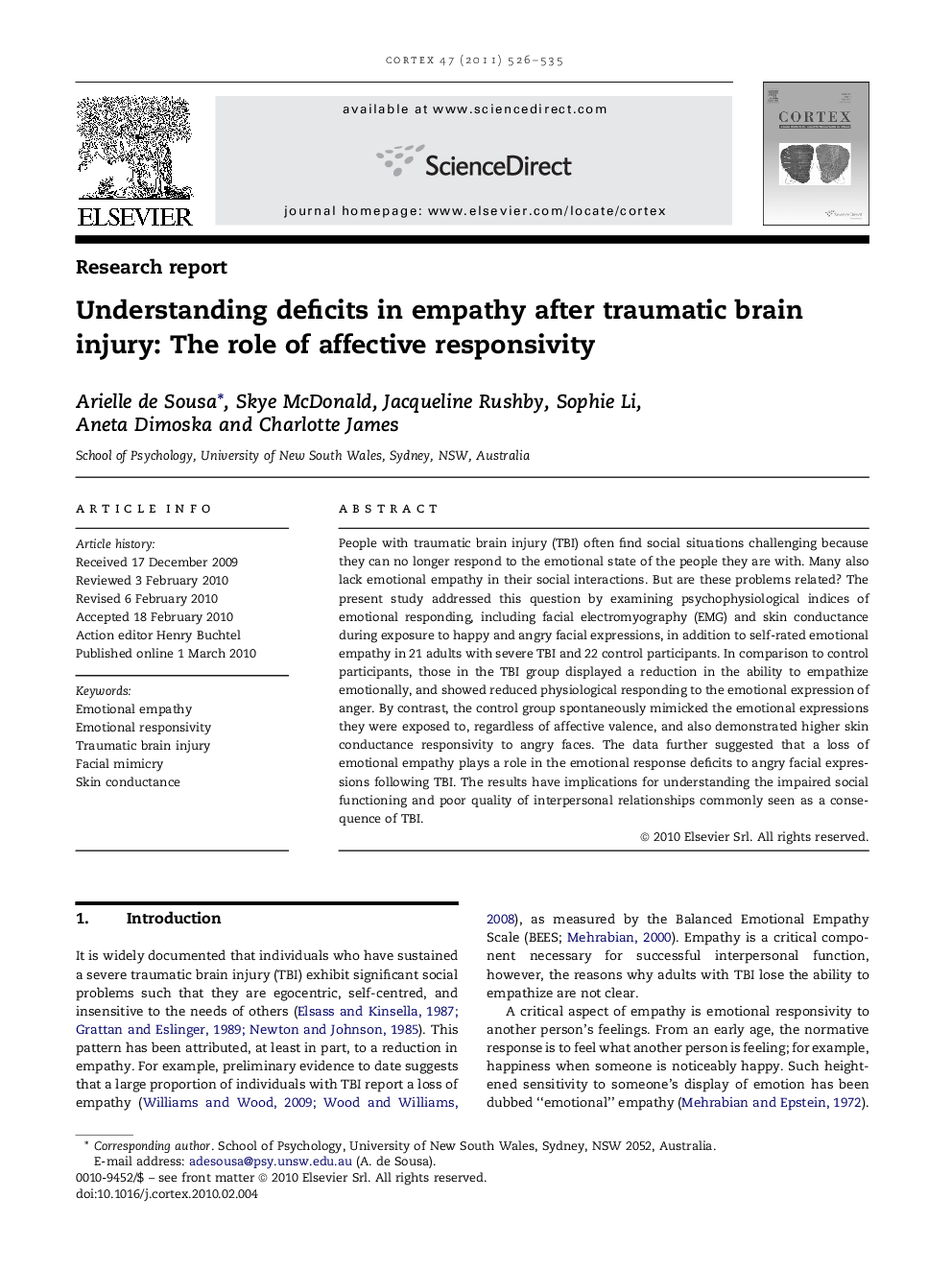| Article ID | Journal | Published Year | Pages | File Type |
|---|---|---|---|---|
| 942404 | Cortex | 2011 | 10 Pages |
People with traumatic brain injury (TBI) often find social situations challenging because they can no longer respond to the emotional state of the people they are with. Many also lack emotional empathy in their social interactions. But are these problems related? The present study addressed this question by examining psychophysiological indices of emotional responding, including facial electromyography (EMG) and skin conductance during exposure to happy and angry facial expressions, in addition to self-rated emotional empathy in 21 adults with severe TBI and 22 control participants. In comparison to control participants, those in the TBI group displayed a reduction in the ability to empathize emotionally, and showed reduced physiological responding to the emotional expression of anger. By contrast, the control group spontaneously mimicked the emotional expressions they were exposed to, regardless of affective valence, and also demonstrated higher skin conductance responsivity to angry faces. The data further suggested that a loss of emotional empathy plays a role in the emotional response deficits to angry facial expressions following TBI. The results have implications for understanding the impaired social functioning and poor quality of interpersonal relationships commonly seen as a consequence of TBI.
